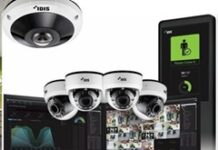
Nearly 70% are looking to implement AI in the next five years, as Senseon Pro is launched to help SMEs combat the complexity of cyber security. Senseon has released the results of a research project to understand the state of cyber security in modern SMEs. The research revealed that, while a significant proportion of SMEs believe in their current approach to security, they are struggling when it comes to allocation of budget.
There is increasing uncertainty on whether the investment into the security solutions they’re currently using is worth the cost. The survey also reveals that SMEs have been slow to implement AI solutions, despite the vast majority of SMEs surveyed (81%) thinking that AI will be fundamental to the future of cyber security.
Mis-allocation of security budgets are leaving SMEs at risk
Although 88% of SMEs do have a dedicated security budget, more than half (53%) thought increased budget would help them deal with their cyber security workload, suggesting that their current allocation of resources is inefficient. Most security professionals (56%) believe that the answer to strengthening their security is to buy more solutions.
However, the research also revealed security professionals are uncertain whether they receive ROI on their current solutions, with 49% saying they believe that investment in cyber security results in an overall net loss for the business. Unfortunately, budgetary constraints are impacting adoption of new technologies, like AI, among SMEs. More than half (52%) said the cost of AI-based solutions was the greatest hurdle to adoption. In an increasingly complex threat landscape, with entrepreneurial hackers targeting the likes of these smaller establishments, it would seem that mis-allocation of security budgets within SMEs is leaving their businesses at risk.
David Atkinson, CEO and founder of Senseon, said: “There is a common misconception that an increased number of security tools equals better protection. With almost 25% of SMEs having between 11 and 20 different tools in their security stack, and the survey indicating that security professionals within these businesses are struggling with workload, it’s no surprise that SMEs are becoming an increasingly common target for hackers. Issues within SMEs surrounding security are centred around stringent budgets, and frantic adoption of more and more tools is likely resulting in needless costs for the businesses.
“No matter what the maturity of a business or indeed the maturity of its security stack, it is vital that C-suite, IT and security teams rationalise their existing technologies and look to prove a strong return on investment as well as protecting the business. Ultimately, the cost of AI solutions is countered by its ability to automate the detection of threats and to augment the role of security analysts, which saves security teams valuable time by separating the signal from the noise and flagging the genuinely malicious threats.”
The research showed that SMEs are sure AI is the future of cyber security solutions:
• Sixty-nine percent of SMEs are looking to implement AI security solutions in the next five years, with 44% of SMEs planning to invest in AI/ML defence in the immediate future
• Seventy-six percent of respondents agreed that AI has the capacity to improve the efficiency of their day-to-day jobs
• Eighty-one percent said that AI will be able to improve the security posture of their organisations
However, uptake of AI solutions within SMEs has been slower than within enterprises, with 4% adoption rate. Aside from the cost being a barrier to adoption, the results also pinpoint hesitation around AI’s marketing hype as a barrier (24%), and 36% of professionals have been hesitant to adopt it simply on the basis they haven’t used AI before.
Atkinson continued: “There is a clear gulf between belief in AI’s benefits and actual implementation; and while this divide exists, SMEs will suffer. It’s easy to understand the hesitation around marking hype: according to MMC Ventures’ recent report ‘The State of AI: Divergence’, 40% of AI start-ups were found to not actually use AI. This is why at Senseon we believe in the importance of clarity regarding the strengths and limitations of AI in security but also to expose the reasoning of the machine – to demonstrate its thinking and prove its value.”











